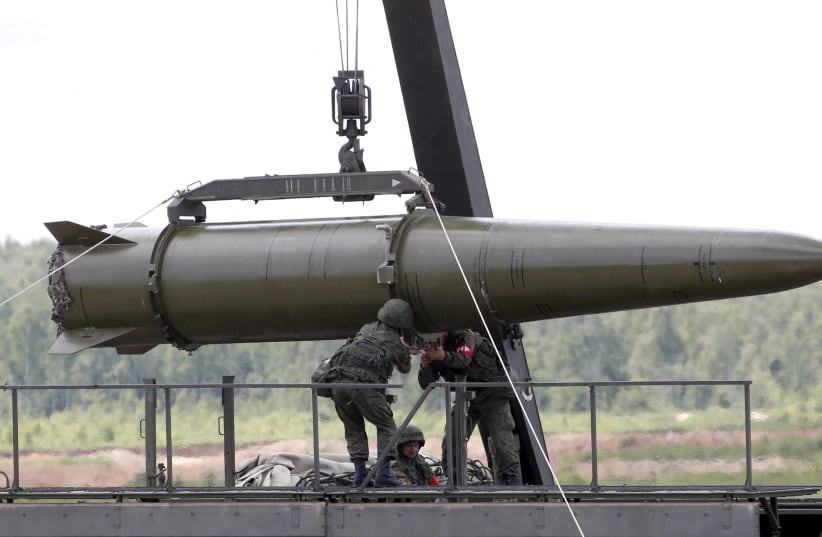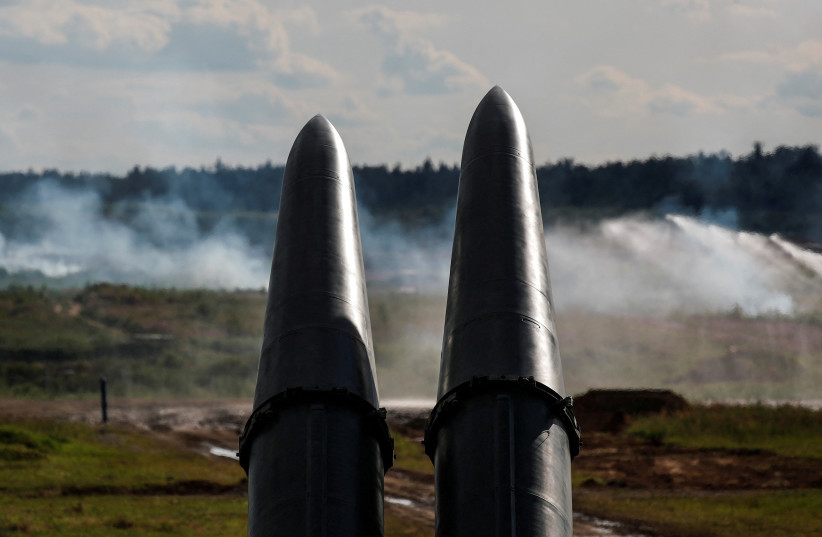The US and Russian defense establishments laid out competing claims about the depletion of Russian precision-guided missile stocks last week.
"We do assess that they [Russia] are running through their precision-guided missiles at a pretty fast clip," said Pentagon Press Secretary John F. Kirby last Tuesday. "We know that in Mariupol for instance, their use of munitions has migrated from almost all precision-guided to a significant number of what we would call dumb bombs, non-precision-guided munitions."
"Due to the fact that the enemy used almost the entire set of cruise missiles of the 'Kalibr' and 'Iskander' tactical missile systems during the first twenty days of the operation, he continues to launch missile and bomb strikes on infrastructure and housing neighborhoods of large cities using indiscriminate weapons," the General Staff of the Armed Forces of Ukraine claimed in a statement in mid-March.
"We believe that the sanctions are part of this because it's harder for [Russian President Vladimir] Putin to get the kinds of components that make up precision-guided munitions and his defense industrial base is having trouble keeping up with that."
Ukraine's Intelligence Directorate (GUR) has put out multiple intelligence reports on how sanctions have raised the cost of war materials and labor and prevented Russia from importing electronics key to the production of modern weapons.
GUR has said that Russian surface-to-air missiles, tanks and shipyard production have been hindered by these restrictions.
However, in an interview with Interfax last week, Russian Deputy Prime Minister Yuri Borisov dismissed claims that Russia was running out of precision-guided missiles.
"If you believe everything that they say on the other side, Russia should have run out of missiles in March. But for some reason it didn't end," Borisov said to Interfax. "The military-industrial complex supplies our army with all the necessary range of missiles in the required volumes. The stocks of modern high-precision missiles and ammunition are enough to fulfill all the tasks assigned to the Russian Armed Forces."
Borisov also rejected reports that Russian missiles have been inaccurate and have failed to hit their intended targets. He told Interfax that the weapons had confirmed their effectiveness and accuracy, "which made it possible to hit military infrastructure facilities throughout Ukraine with high accuracy, and thereby minimize civilian casualties."
In late March, three US officials reportedly with knowledge of intelligence on the issue told Reuters that Russian precision-guided missiles are failing up to 60% of the time in Ukraine.
Two experts interviewed by Reuters said any missile failure rate above 20% would be considered high.Reuters and Jerusalem Post Staff contributed to this report.

